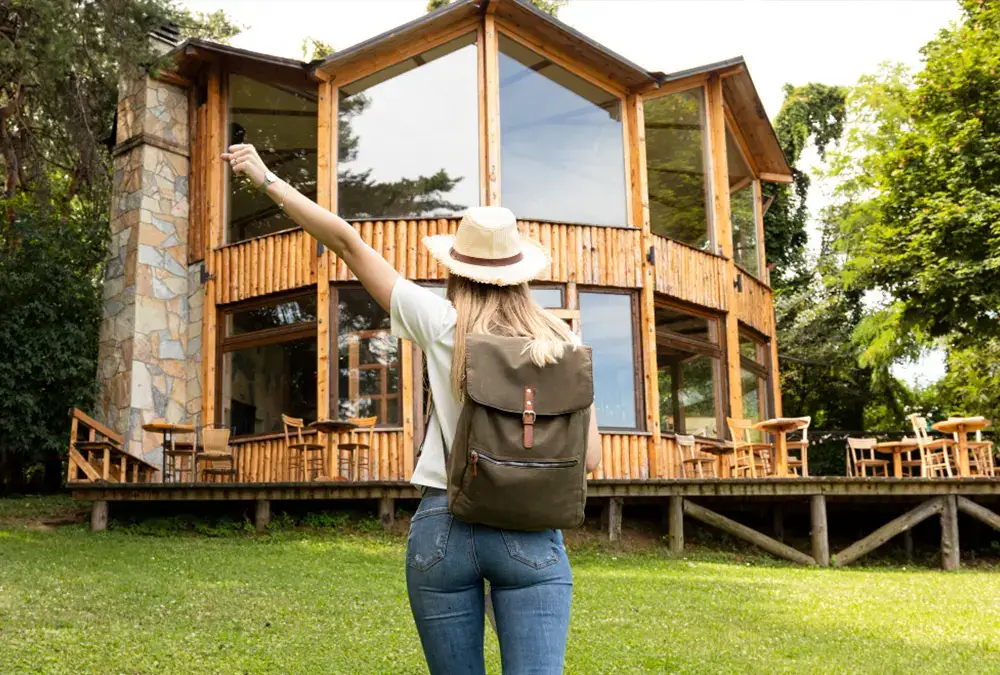
Traveling the world is a privilege that comes with a responsibility—to protect and preserve the destinations we visit for future generations. Sustainable travel, also known as eco-friendly or responsible travel, focuses on minimizing the negative impact of tourism on the environment, cultures, and communities. It’s about making conscious choices that support local economies, protect natural resources, and promote cultural exchange. In this comprehensive guide, we’ll delve into the principles of sustainable travel and provide actionable tips for exploring the world responsibly.
Understanding Ecological Travel
Ecological travel goes beyond mere sightseeing. It’s a commitment to leave a positive mark on the places you visit. By being mindful of your actions and choices, you can contribute to the well-being of destinations and ensure that they remain vibrant and accessible for generations to come.
1. Choose Eco-Friendly Transportation
Public Transportation: Whenever possible, opt for public transportation like buses, trains, and subways. This reduces carbon emissions and supports local transit systems.
Carpooling and Sharing Rides: If public transportation isn’t feasible, consider carpooling or ride-sharing to minimize the number of vehicles on the road.
Cycling and Walking: Explore your destination on foot or by bicycle to reduce your carbon footprint and experience the surroundings at a leisurely pace.
Eco-Friendly Vehicles: If renting a vehicle, choose hybrid or electric options that have a lower impact on the environment.
2. Minimize Plastic Usage
Reusable Water Bottle: Carry a reusable water bottle and refill it with clean, safe water to reduce the need for single-use plastic bottles.
Reusable Bags: Bring a reusable bag for shopping and avoid using plastic bags.
Say No to Straws: Refuse plastic straws and bring your own reusable straw if necessary.
Avoid Plastic Toiletries: Use refillable toiletry containers and avoid single-use hotel toiletries.
Explore some of the finest Eco friendly travel products: Explore & Buy Now!
3. Choose Accommodations Wisely
Eco-Friendly Accommodations: Opt for hotels, lodges, or guesthouses that have sustainability initiatives such as energy-efficient appliances, water-saving practices, and waste reduction programs.
Support Local Stays: Consider staying in locally owned accommodations to support the local economy directly.
Eco-Lodges and Homestays: Explore eco-lodges or homestays that offer an authentic experience while contributing to community development.
4. Respect Local Cultures and Traditions
Learn Local Customs: Research and understand the local customs and traditions before visiting a new destination to show respect and avoid unintentional cultural insensitivity.
Dress Appropriately: Dress modestly and appropriately, especially when visiting religious or conservative sites.
Language and Communication: Learn a few basic phrases in the local language to facilitate communication and build rapport with locals.
5. Support Local Economies
Shop Local: Purchase souvenirs, crafts, and products made by local artisans to support the local economy.
Eat Local: Dine at local restaurants, markets, and street vendors to experience authentic cuisine and contribute to the livelihoods of local communities.
Use Local Services: Hire local guides, drivers, and tour operators to ensure your money directly benefits the local economy.
6. Leave No Trace
Pack Out What You Pack In: Dispose of waste properly and carry any trash with you if proper disposal isn’t available.
Respect Wildlife: Observe animals in their natural habitats from a respectful distance and avoid disturbing or feeding them.
Stick to Trails: When hiking or exploring, stick to designated trails and avoid creating new paths to preserve the natural landscape.
7. Conserve Energy and Resources
Turn Off Lights and Appliances: Be mindful of energy consumption in accommodations by turning off lights, air conditioning, and appliances when not in use.
Limit Water Usage: Conserve water by taking shorter showers, reusing towels, and reporting any leaks.
8. Give Back to the Community
Volunteer Opportunities: Seek out responsible volunteer opportunities that align with the needs and priorities of the local community.
Responsible Tourism Initiatives: Participate in community-based tourism initiatives that directly benefit local people and promote sustainable development.
9. Offset Your Carbon Footprint
Carbon Offsetting: Consider purchasing carbon offsets to compensate for the environmental impact of your travel by supporting projects that reduce greenhouse gas emissions.
10. Educate Yourself and Others
Research and Learn: Educate yourself about the destination’s history, culture, and environment to deepen your understanding and appreciation.
Spread Awareness: Share your experiences and knowledge with others to encourage responsible travel practices among friends and family.
Benefits of Sustainable Travel
Preservation of Destinations: Sustainable travel helps protect the natural beauty, cultural heritage, and integrity of destinations.
Positive Economic Impact: By supporting local economies, sustainable travelers contribute to the prosperity of communities.
Cultural Exchange: Engaging with local cultures fosters meaningful connections and enriching experiences.
Environmental Conservation: Minimizing waste and carbon emissions contributes to the preservation of the environment.
Personal Fulfillment: Responsible travel provides a sense of purpose and fulfillment as you actively contribute to the well-being of the places you visit.
Explore with Purpose
Sustainable travel is a commitment to exploring the world with mindfulness and purpose. By making conscious choices and adopting responsible practices, you can ensure that your travel experiences have a positive impact on both the destinations you visit and your own sense of well-being. As a responsible traveler, you have the power to create lasting memories while contributing to the preservation of natural wonders, cultural heritage, and the well-being of local communities. So embark on your next journey with a heart full of curiosity, a mind open to learning, and a commitment to leave a positive footprint wherever you go.














